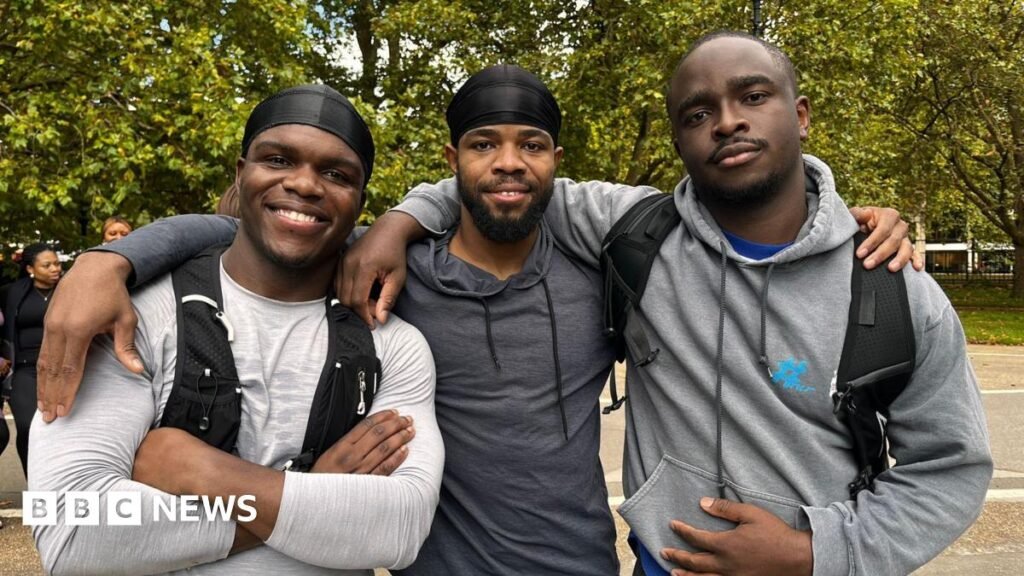For Francesca Ngozi Ezennolim, 21, was drawn from Reading, about 64km (40 miles) from London, on Saturday morning not by the prospect of romance but by the promise of community.
“I don’t have many Igbo friends,” she said, adding, “I have a lot of Nigerian friends, but it’s hard to find Igbo friends.”
Dressed in a black tracksuit, she told the BBC she hoped the running club would fill a hole in her life.
And she is not alone.
A first-timer at the club, 23-year-old Jennifer Iwuamadi echoed the same sentiments.
“It is very important to come to the Igbo running club because we can communicate with our brothers and sisters. It’s a great way to get fit and socialize,” she said.
Although the Igbos are one of Nigeria’s largest ethnic groups and are prominent in the diaspora, many feel their culture is under threat. In 2006, the United Nations cultural organization (UNESCO) predicted that the Igbo language would be extinct by 2025.
However, in the UK their number has risen over the past decade – from around 8,000 to 11,000, according to the Office for National Statistics.
In contrast, the number of speakers of Yoruba, the other main language in southern Nigeria, fell from 15,000 to 10,000 during the same period.
However, some young Igbo men told the BBC that they find it difficult to make friends outside their parents’ community.
“I have so many Yoruba friends, but I want to meet people from my tribe,” Ms Ezenalim told the BBC.
“When people think of a Nigerian, they don’t really think of an Igbo. Nigeria is not one piece, it is several pieces,” Mr. Odoemene said.
But isn’t it divisive to have a running club that targets Igbo culture?
The founders nod sharply.
“You don’t have to be Igbo to come to the running club,” Mr Otumoniyoga said.
He adds that people from Iran, Italy and the Caribbean have come to their classes – and they encourage others to join in, learn about Igbo culture, ask questions and soak up the vibrant atmosphere.
Yet, behind the joy and camaraderie, there is a dark side to Igbo history.
In Nigeria, many people still associate the Igbo with the 1967-70 Biafra war, in which about a million people died after Igbo leaders in the southeast led a campaign to secede from the rest of the country.
Decades later, the wounds of the war remain sharp, still to some extent shaping attitudes towards the Igbo people both at home and abroad.
In his book The Trouble with Nigeria, the late Chinua Achebe, one of Nigeria’s best-known authors who was an Igbo, said: “Nigerians are likely to reach consensus on nothing other than their common resentment of the Igbo.”

